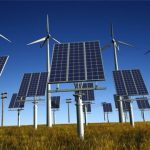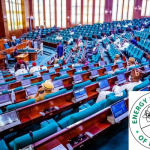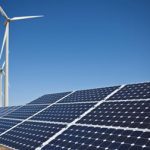German and Nigerian businesses signed two crucial agreements in Berlin on Tuesday, marking a major step toward deepening economic ties.
The $500 million agreements, which include a gas export contract and a renewable energy agreement, represent a turning point in bilateral cooperation, according to a statement from the presidential spokesperson, Ajuri Ngelale.
A formal Memorandum of Understanding on renewable energy was signed by the Union Bank of Nigeria and the DWS Group of Germany.
Through this strategic partnership, $500 million in investments intended for renewable energy projects will be drawn in, with a primary focus on rural communities in Nigeria.
According to the statement, the second MoU solidified a gas export partnership between Riverside LNG of Nigeria and Germany’s Johannes Schuetze Energy Import AG.
Nigeria commits to supplying 850,000 tons of natural gas annually to Germany, with projections indicating an increase to 1.2 million tons. The initial shipments are scheduled for 2026, the statement confirmed.
An integral aspect of this deal is its contribution to processing approximately 50 million cubic feet per day of natural gas that would otherwise be flared.
This aligns with both nations’ commitment to environmentally conscious practices and sustainable energy solutions.
Nigeria, home to Africa’s largest gas reserves exceeding 200 trillion cubic feet, has grappled with environmental concerns linked to gas flaring.
This deal signifies a crucial step toward addressing this issue and harnessing Nigeria’s abundant gas resources for sustainable energy projects.
President Bola Tinubu, attending the G20 Compact with Africa conference in Berlin, expressed his approval of the agreements.
This positive sentiment aligns with Germany’s commitment, as Chancellor Olaf Scholz announced a 4 billion euro investment in green energy projects in Africa by 2030. The collaborative effort aims to support Germany’s transition to carbon neutrality and meet its goal of net-zero emissions by 2045.
Acknowledging the need for green hydrogen imports, particularly from Africa, Scholz highlighted the pivotal role these investments play in achieving environmental objectives.
The remarks were made during a German-African business forum preceding the G20 Compact with Africa summit, focusing on coordinating development agendas and identifying business opportunities in Africa.














